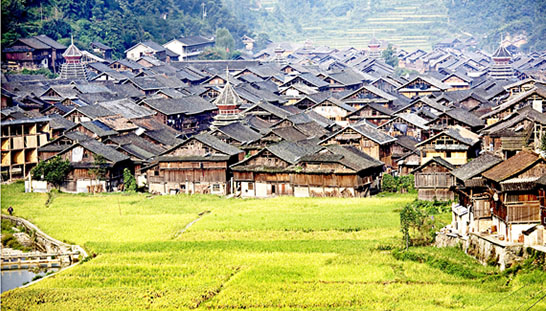As traditional villages vanish, so too does distinct culture

The number of villages in Liping, Guizhou Province is rapidly decreasing.
Traditional Chinese villages carry a nation’s historical memory and embody the nostalgia of Chinese people at home and abroad. This means they play a significant role in cultural heritage. According to official statistics, the total number of natural Chinese villages in 2000 was 3.63 million and just a decade later, the number had decreased to 2.71 million. In just a decade, 0.9 million natural villages disappeared and the situation is not optimistic. The protection and development of traditional villages has drawn significant attention from related departments. But there is a divergence of opinions about preservation of intangible cultural heritage that requires attention.
Investigation and protection of traditional villages will contribute to understanding the construction and restoration technology for folk buildings. Putting an emphasis on inheritance and protection mechanisms is important for both intangible cultural heritage and the whole Chinese architectural and cultural heritage field. In this way, it not only protects intangible cultural heritage in traditional villages, but also captures the origin and development of traditional architecture.
The site selection and structure of village architecture relate to both the ecological environment and ancient Chinese wisdom and thought. Ancient people’s fengshui, the art of harmonizing everyone with the surrounding environment, and the skill of applying geomantic omens into site planning involved many philosophical ideas, such as the unity of people and nature, yin and yang, and the theory of five elements—metal, wood, water, fire and earth. It demonstrates that ancient Chinese were concerned about the relationship between humans and the natural environment, which was the result of agriculture and cultural ethics. So ancient people’s philosophical ideas behind the construction of traditional villages are the core element of folk culture and deserve further protection.
Li Yang is from the College of Applied Arts and Science of Beijing Union University.
